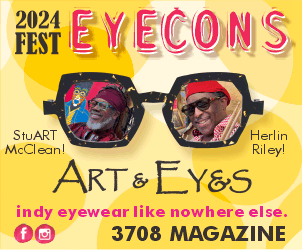Just like everyone else, I check the latest grim statistics daily; I listen to the latest news to see if any progress has been made in the fight against COVID-19.
Everyone from OffBeat is now working from home. Frenchmen Street is not only closed down, much of it is boarded up. But daily, I call my family to make sure they are feeling okay. Every day I email and talk to friends and clients on the phone or on FaceTime. I meet with colleagues on Zoom to share news, have business meetings…and just say hello.
If you are well, we’re grateful.
We’re all in a very strange, unanticipated world right now. It’s even harder because most of us (if we’re at all cognizant) realize that things will never be the same as they were. And we live with a cloud of dread, not knowing who will or can survive this devastation physically, emotionally and financially. Just today, I heard several members of the Zulu organization had died as a result of the virus. A nurse who worked at a hospital in New Orleans East died from coronavirus complications; she claimed the hospital was not testing its staff for the virus…until she developed symptoms. This is incredibly horrific to hear.
But here’s the thing that really brought the horror of this pandemic home. As I was writing this evening (Wednesday), I got word that Ellis Marsalis had died while he was being treated in the hospital with COVID-19 symptoms. This made it real
I had spoken with Bethany Bultman today (of the New Orleans Musicians Clinic and Assistance Foundation) and she gave me some even more frightening information. Many people in the music and cultural communities are older than 60. Some have conditions that make them more susceptible to the virus: a history of smoking cigarettes or marijuana; alcohol or substance abuse, Hep C, AIDS, and in general not taking good care of themselves—not because they don’t want to—but because they haven’t had the resources to do so. No health insurance, perhaps (you need it especially when you work as a musician); there are too many “occupational hazards” you have to deal with. Too little money to buy nutritious foods. Let’s face it: our musicians, culture bearers, artists and gig economy workers are, for the most part, probably living in less than ideally healthy circumstances. They, and the very nature of New Orleans’ culture, is in danger. I applaud the NOMCAF for stepping up to take good care of our music community in the past, and especially now. Their website has great resources for musicians.
Emotionally, I think that we all are currently caught somewhere in the classic Kübler-Ross model of the grieving process for our pre-pandemic lives: shock and denial, anger, bargaining, depression and acceptance. But some models add two more steps: reconstruction and hope. It’s difficult to be hopeful when the situation hasn’t quite yet bottomed out, when we are still in the process of seeing friends and loved ones sick and dying.
The same emotions hold true for New Orleans’ music community.
Many of us in music here are still in the shock and denial phase. How can we survive this? Even before the pandemic gathered steam, there were rumblings that our music scene was changing forevermore. Now it’s hitting home. Ellis. Wow.
I want to encourage everyone to do their due diligence in being extremely careful to follow “social distancing” and other government guidelines during this time. I wish some of our federal officials had taken this virus a lot more seriously long ago (I’d encourage you to watch this video, shot in South Korea, to see why that country is in better shape than the US; it’s long but very informative).
Please stay safe! Wash your hands diligently, stay inside as much as possible, and be careful. It’s the only way we’re going to get back to a semblance of anything “normal.” We’ll get through this. We have to.



